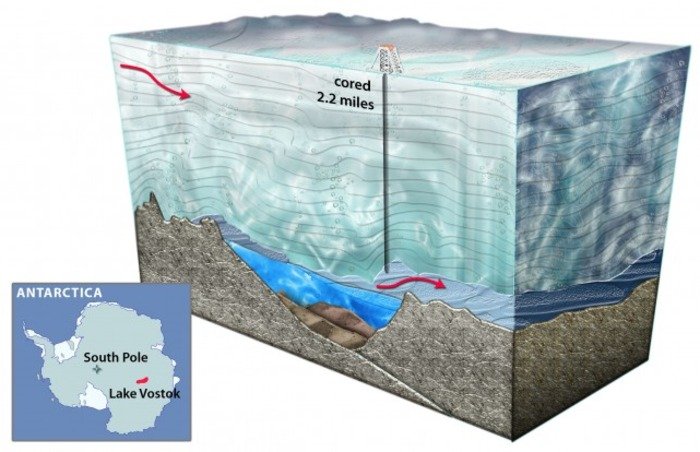Lake Vostok drilling project. Credit: U.S. National Science Foundation
ST. PETERSBURG, Russia, March 11 (UPI) -- Russian scientists still say an "unclassified" species of bacteria was found in water samples beneath Antarctic ice, although some colleagues are disputing it.
The Arctic and Antarctic Research Institute in St. Petersburg officially confirmed on Monday probes from Lake Vostok, 2 miles beneath the frozen ice cover of Antarctica, contained a bacterium that did not match DNA sequences of any of the main subdivisions of the biological domain of bacteria.
"After excluding all known contaminants ... we discovered bacterial DNA that does not match any known species listed in global data banks. We call it unidentified and 'unclassified' life," Sergei Bulat, a researcher at the Laboratory of Eukaryote Genetics at the St. Petersburg institute told RIA Novosti.
But a colleague of Bulat's has disputed that claim.
"We found certain specimens, although not many, but all of them belonged to contaminants (microorganisms from the bore-hole kerosene, human bodies or the lab)," Eukaryote lab head Vladimir Korolyov said Saturday. "There was one strain of bacteria which we did not find in drilling liquid, but the bacteria could in principal use kerosene as an energy source," Korolyov said.
"That is why we can't say that a previously unknown bacteria was found," he said.
But Bulat is maintaining the bacterium has no relation to any existing types.
He acknowledged the small size of the initial sample and its heavy contamination made it difficult to conduct more extensive research.
New samples of clean frozen water from the sub-glacial lake due to arrive in St. Petersburg this spring will make it possible to "confirm the find and, perhaps, discover new previously unknown forms of microbial life," he said.















